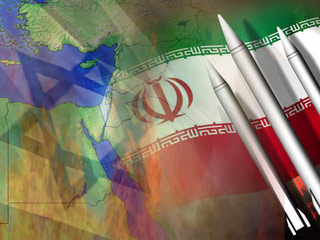During the Arab Spring, Obama seemed to outsource much of his Syria policy to Ankara. But with Erdogan having proved unable to convince the Syrian dictator to reform as planned, Obama must now formulate his own plans.
More and more outsiders are calling for a humanitarian intervention in Syria to stop Bashar al-Assad's killing sprees. But for this to work, Syria's various opposition groups will have to first coalesce into a single, unified political and military force.
On November 12, the Arab League suspended Bashar al-Assad's Syria. After that, King Abdullah II of Jordan publicly called on the Syrian President to go -- the first such demand by an Arab leader. Turkish officials have been even more vocal: Ten days after the Arab League's decision, Prime Minister Recep Tayyip Erdoğan explicitly called on Assad to "remove [himself] from that seat," accusing him of "cowardice." And just this week, the Arab League imposed sanctions on the regime, including freezing its assets, ending all dealings with the Central Bank of Syria, and halting financial interaction with the Syrian government. Iraq abstained, and Lebanon "dissociated" itself from the decision.
For now, however, Assad is hanging on -- and has been for the better part of a year. He has relied on allied countries, especially Iran and Russia, to block international action, hoping to buy time to put down the protesters himself. Although his hand is proving weaker by the day, he will continue to play it. It is all he's got.
Iran has been the regime's strategic ally since 1979. For more than three decades, the two have worked together with Tehran's proxy, Hezbollah, to counterbalance the pro-American Arab states. Syria, meanwhile, has been indispensable to Iran, serving as its bridgehead in the eastern Mediterranean and main supply line to Hezbollah. Accordingly, both have come out in strong support of Assad during the current crisis, and neither will likely turn on him in the future.
If "Lebanon and Iran are our economic lungs," as one Syrian official recently
put it, then "Russia is our political shield." Indeed, Russia blocked a resolution at the UN Security Council in early October that would have condemned Syria's "grave and systematic human rights violations" and proposed possible actions -- namely, sanctions -- to be considered against the Assad regime. The United States and France are hoping to revisit the issue soon (France has even advocated building a "secure zone to protect civilians," although the European Union has not endorsed this position) and might try to leverage the Arab League's newfound activism to do so. But there are no signs of change in Moscow's position. In fact, Russia condemned the Arab League's decision and accused the United States of inciting violence and blocking dialogue.
Until the Kremlin loses faith in Assad, he need not fear the United Nations.
For Russia, the Western and Turkish pressure on Syria is an encroachment on its traditional sphere of influence. In fact, Moscow's long-established military ties to Damascus have allowed it to project power into the Middle East and beyond. For example, the Russians often threaten to offer advanced weapons to Syria in order to extract concessions from the United States and Israel. Syria also affords Russia a foothold in the Mediterranean through a shared naval maintenance facility at the Syrian port city of Tartus. In 2008, there was even talk of renovating and enlarging the port to accommodate a permanent Russian naval presence, although nothing has since materialized. So it should have been no surprise that after the Arab League moved against Assad, Moscow announced that it would continue to honor all arms contracts with the Syrian government and would be sending warships to make port calls in Syria this summer (as well as in Beirut, Genoa, and Cyprus). Syrian propagandists tried to spin the news as Russia drawing a "red line" around Syria. The Russians, however, have been subtler: Military sources in Moscow told
Izvestia that the move had been planned a year ago and had no connection with the ongoing crisis in Syria.
Until the Kremlin loses faith in Assad, he need not fear the United Nations. But must he fear NATO?
The answer depends on Turkey and the United States. At the start of the crisis, Ankara delayed the United States from officially adopting a policy of regime change in Syria. Erdoğan was a personal friend of Assad and is fearful of turmoil on his country's border. Throughout the spring and summer, the Turkish prime minister attempted to broker a political resolution to the crisis, but Assad continually brushed him off. Now, Ankara realizes that Assad has no future and has -- a bit hesitantly -- put its weight behind the uprising.
To be sure, Erdoğan has adopted a strong declaratory anti-Assad policy. Turkey also agreed to go along with some of the Arab League's sanctions and offered a haven to the commander and several officers of the Free Syrian Army, the group of defectors from Assad's forces that have prevented his security forces from retaking, among other areas, the vital city of Homs. Turkish Foreign Minister Ahmet Davutoğlu even
indicated that should the killings continue, Ankara would not rule out limited humanitarian intervention. The most likely form would be carving out a safe zone along the border -- what publicists for the Syrian regime refer to as a kind of Syrian Benghazi, after the rebel base in Libya earlier this year.
Nevertheless, the Turks have stopped short of putting boots on the ground. And Assad would like to keep things this way. The Syrian regime believes it still has two cards to play to keep Ankara from active intervention: the Turkish government's ongoing war against the Kurdistan Workers' Party (PKK) and its reluctance to enter into conflict with Iran.
Referents. By: Karen Maguilbray











